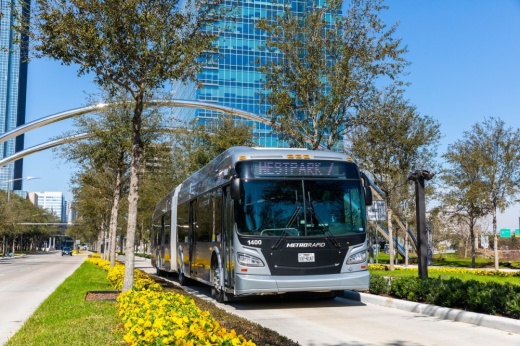The agency announced it would not make a decision on the project’s proposed locally preferred alternative route during its March 23 board meeting. Residents and community leaders expressed a number of concerns during the meeting, primarily centered around insufficient public engagement by the agency and an overpass that would run along Lockwood Drive in the East End community.
The rapid transit bus line is projected to run 25.3 miles from the Westchase Park & Ride near the intersection of Westpark and Sam Houston tollways to the Tidwell Transit Center near the intersection of Tidwell Road and Hwy. 59. The buses will move through traffic in a dedicated, transit-only lane.
The line is a piece of METRONext, a $7 billion plan set to be executed over the next 20 years that is covered by a mix of federal funding and a $3.5 billion bond referendum approved in 2019 by nearly 70% of area voters.
The overpass, part of Segment 4, would run along Lockwood Drive from McKinney Street to Canal Street and cross over Union Pacific Corp.-owned railroad tracks, per the alignment. Houston’s District I Council Member Robert Gallegos expressed concerns at the meeting about harm to the historic Eastwood neighborhood that could be caused by the structure. Harris County Precinct 2 Commissioner Adrian Garcia echoed his concerns.
“I believe that METRO does owe it to the residents of East End to build consensus; help them understand why Lockwood was chosen over any other option. Overpasses tend to be divisive, tend to separate communities even further. Our Black and brown communities have had already historically too much of that,” Garcia said.
METRO Board Chair Sanjay Ramabhadran said the agency anticipates bringing the item back to the board for consideration for a vote in the next week or two, following more conversations with the community.
“METRO’s commitment is, [locally preferred alternative] aside, continuing community dialogue throughout the course of this project because we’re not even at 30% design,” Ramabhadran said. “There is a lot of ways to go before we actually start building things.”





